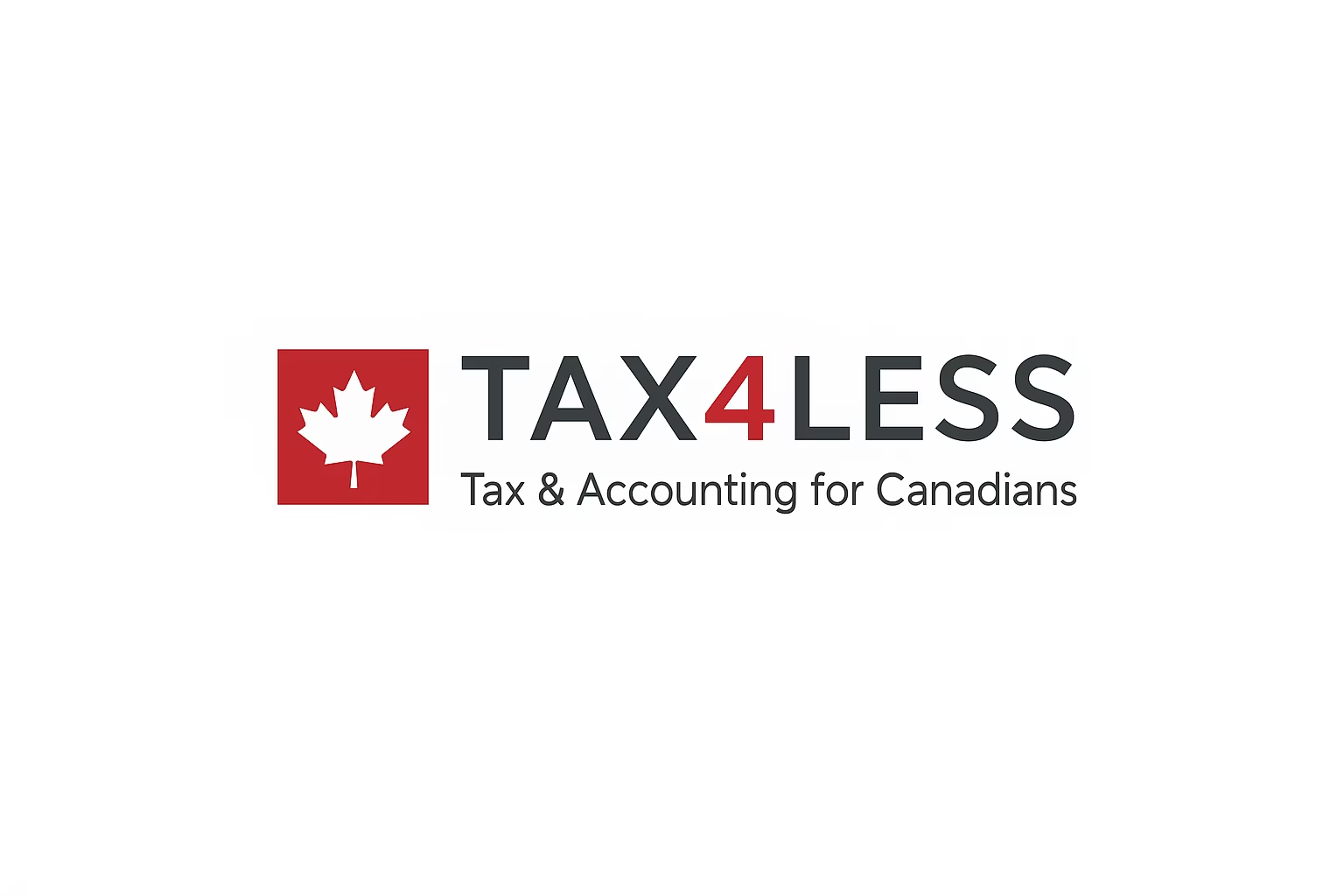CRA Launches Special Assessments Program: Rental & Business Loss Claims Under Review
Published: June 27, 2025 | Author: Tax4Less.ca
Website: https://tax4less.ca
Professional Advice Before You Decide to DIY or Higher a Professional
You might be wondering: “Can I handle this CRA inquiry on my own?” Technically, yes — but should you?
🚫 Our Advice: No
In our experience, CRA reviewers often deny expenses submitted directly by taxpayers — not necessarily because they’re invalid, but because most individuals lack the technical knowledge and experience to present their case effectively.
CRA agents are trained to identify gaps, misclassifications, and missing links in your explanation. A professional, on the other hand, can speak their language, use correct tax terminology, and provide documentation that aligns with CRA expectations.
In many cases we’ve handled, CRA disallowed legitimate claims simply due to:
A small error in categorization (e.g., claiming advertising under meals)
Missing receipts that could have been substituted with alternative proof
Lack of a profit rationale that a tax professional could clearly explain
Hiring a professional like Tax4Less gives you the advantage of independent third-party representation. We act as your advocate and can often resolve matters faster — and with less financial loss.
As the 2024 tax season closes, many taxpayers are enjoying a brief moment of peace after filing their returns. However, for a growing number of Canadians, that calm may soon be interrupted by a letter from the Canada Revenue Agency (CRA).
The CRA has launched an intensified post-assessment review focused heavily on rental loss claims and self-employed or small business losses. This is not routine. This year’s activity marks a noticeable increase in targeted assessments, especially where repeated or large losses have been claimed without substantiating profit-making activity.
At Tax4Less.ca, we’ve seen a surge in clients receiving audit letters or requests for clarification. If you’re among them — or want to avoid being one — read on to understand what’s happening, how to prepare, and how we can help.
What Is a CRA Special Assessment?
After you file your tax return, the CRA doesn’t always close the book immediately. In fact, it’s common for them to run post-assessment reviews, especially after tax season ends. These reviews aim to verify that:
Income is fully and correctly reported
Deductions and credits claimed are legitimate
Supporting documentation exists
A special assessment is simply an in-depth version of that review. And this year, CRA agents are clearly prioritizing two common areas for abuse or error:
Rental property losses
Business/self-employment losses
Let’s explore why.
Why Are Rental and Business Losses Being Flagged?
1. Rental Property Losses
Owning a rental property does not automatically mean you’re running a business. If the property consistently produces a loss, the CRA may question whether it’s a valid income-generating activity or simply a personal investment or tax shelter.
You may be flagged if:
You claimed large expenses like mortgage interest, maintenance, utilities, and property tax
You reported no or minimal rental income
The unit was vacant for a long period or under personal use
The property is shared with family or rented at below-market rates
You claimed capital cost allowance (CCA) or depreciation in a loss year
CRA’s primary concern is whether you had a reasonable expectation of profit. If not, they may deny your loss claim.
2. Business or Self-Employment Losses
Freelancers, consultants, Uber drivers, real estate agents, and small business owners are all common targets for review. The CRA is watching for:
Repeated years of net losses
Large home office or vehicle expense claims
Family members on payroll without documentation
Cash-based businesses with limited or no receipts
No formal business registration or bank account
Startups with no revenue for several years
Again, the CRA applies the test of intent and capacity to generate profit. If your “business” operates more like a hobby, they may disallow deductions.
What Happens If You’re Selected for Review?
Typically, you’ll receive a letter requesting:
Copies of receipts and invoices
Proof of rental income (lease agreements, bank deposits)
Explanation of vacancy periods or non-paying tenants
Proof of business activity (client invoices, contracts)
Details on vehicle use and mileage logs
Clarification of family or personal use of assets
You usually have 30 days to respond.
Failing to provide sufficient evidence can result in:
Denied deductions
Adjusted taxable income
Interest and penalties
Further scrutiny in future years
What You Should Do Now
Whether you’ve already received a notice or want to prepare proactively, here’s what you can do:
✅ 1. Organize Your Records
Gather:
Lease agreements
Bank statements showing rent deposits
Expense receipts
T2 or T2125 forms filed with return
CRA My Account correspondence
✅ 2. Understand Your Intent to Earn Profit
Be ready to explain:
Why the rental or business exists
What steps you’ve taken to make it profitable
How you track income and expenses
Why losses occurred in the year(s) in question
✅ 3. Respond On Time
Never ignore a CRA letter. A non-response can be treated as non-compliance. If you need help responding professionally, contact a tax expert.
How Tax4Less.ca Can Help
At Tax4Less.ca, we provide personalized, experienced support for:
CRA audit response and representation
Verifying your records before submission
Reconstructing missing receipts or ledgers
Legal arguments around “reasonable expectation of profit”
Ensuring valid classification of expenses and assets
We’ve helped hundreds of clients successfully resolve special assessments and keep their deductions intact.
🧾 Already Received a CRA Letter?
Don’t panic — act. We’re here to help.
➡️ Contact us to speak with an advisor today.
➡️ Book a consultation and get your case reviewed fast.
➡️ New to Tax4Less? Fill out our secure client intake form so we can assess your situation.
Why CRA Is Doing This Now
Every year after the personal tax deadline (April 30), the CRA increases its post-assessment activity. But recent years have shown growing concern over:
Improper rental claims during the housing crunch
Self-employment losses used to offset high-income jobs
Overuse of vehicle and home office deductions during remote work years
This wave of assessments is not random — CRA uses AI-driven tools, industry benchmarking, and historical patterns to identify high-risk returns.
If your return included any of these red-flag categories, you may be reviewed — whether you’re a T1 filer, corporate owner, or sole proprietor.
Frequently Asked Questions (FAQ)
❓ What if I can’t find my receipts?
Try to recover digital receipts from email, bank statements, or vendors. If you’re missing key records, Tax4Less can help rebuild and document your case.
❓ What if I already responded but CRA asked for more?
That’s common. It means they need clarification. Do not assume your first response was enough. Contact us if you want help drafting a more complete reply.
❓ Will CRA audit me every year now?
Not necessarily — but multiple denied claims do increase the risk. If CRA determines you’re a high-risk filer, your returns may be reviewed more often.
❓ Can I dispute CRA’s assessment?
Yes. You have the right to file a Notice of Objection. If you’re not satisfied with CRA’s reassessment, we can help you launch an appeal.
Don’t Go Through This Alone
Facing CRA scrutiny can be stressful — but it doesn’t have to derail your year. With proper support, documentation, and communication, most reviews can be resolved without penalties.
Let Tax4Less.ca help you respond confidently and accurately. Whether you’re being assessed or just want a proactive review, we’re here to guide you.
📩 Contact us now
📅 Schedule a consultation
📝 Submit a new client intake form
Tax4Less.ca – Trusted Tax Help for Canadians
📍 7777 Weston Road Unit 230, Woodbridge, ON L4L 0G9
📞 647-799-6063 | ✉️ tax.nehal@gmail.com
- accounting services Canada
- Bookkeeping services
- business finance management
- business tax preparation
- corporate tax services
- financial reporting
- GST HST filing
- payroll management
- personal tax returns
- small business accounting
- startup accounting
- tax audit support
- tax compliance Canada
- tax consulting
- tax credits Canada
- tax deadlines Canada
- tax deductions Canada
- tax planning Canada
- Tax4less
- tax4less.ca
- Tax4Less.ca Inc

 Previous Post
Previous Post Next Post
Next Post